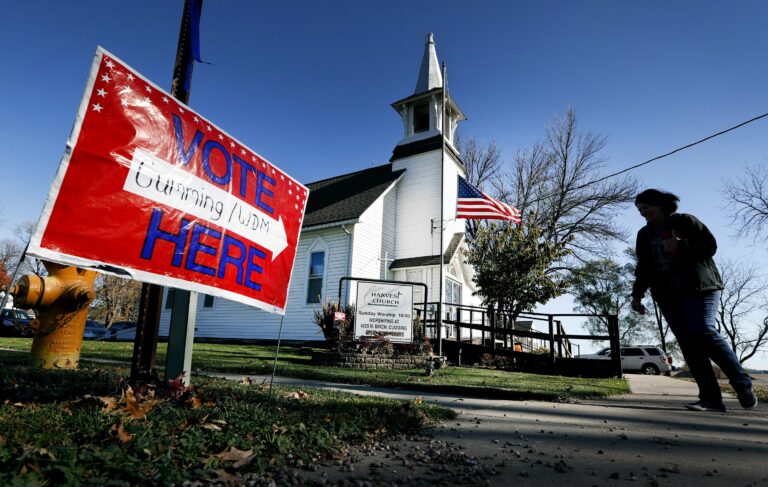The Internal Revenue Service has clarified that churches are permitted to endorse political candidates from the pulpit without jeopardizing their tax-exempt status, according to a recent report by The New York Times. This announcement marks a significant shift in the enforcement of longstanding rules governing the political activities of religious organizations. The ruling is expected to ignite debate over the role of faith institutions in American politics, raising questions about the boundaries between religious expression and electoral influence.
IRS Clarifies Churches’ Rights to Political Endorsements During Services
The Internal Revenue Service has recently issued a statement affirming that houses of worship retain the right to endorse political candidates from the pulpit without jeopardizing their tax-exempt status. This clarification reverses previous interpretations that had discouraged political endorsements within religious services, sparking widespread confusion among church leaders and congregants alike. The IRS highlighted that the First Amendment protections of free speech and religious expression remain pivotal, ensuring that pastors and ministers can openly support candidates aligned with their moral and social values during sermons.
Key points outlined by the IRS include:
- Churches may publicly endorse or oppose political candidates during worship services
- Such activity must not involve coordinated campaign contributions or expenditures on behalf of candidates
- Political endorsements should not become a primary activity that jeopardizes the organization’s tax-exempt classification
| Activity | Permissible? | IRS Notes |
|---|---|---|
| Endorsing candidates during sermons | Yes | Protected under free speech and religious freedom |
| Donating church funds directly to campaigns | No | May jeopardize tax-exempt status |
| Using church premises for candidate campaign events | Conditional | Must be equally available to all candidates |
Implications for Tax-Exempt Status Amid New Guidelines
The recent update from the I.R.S. signals a significant shift in the longstanding interpretation of church participation in political activities. This new guidance clarifies that religious organizations can publicly support or oppose political candidates without automatically forfeiting their tax-exempt status,a departure from the previous stringent restrictions under the Johnson Amendment. However, institutions must remain cautious to ensure that their endorsements remain within the boundaries prescribed by the updated rules.
Key considerations for churches navigating this landscape include:
- Maintaining openness by clearly distinguishing personal endorsements from official church endorsements
- Ensuring political activities do not become the organization’s primary function
- Documenting all political communications to demonstrate compliance with I.R.S.regulations
| Activity | Permitted Under New Guidelines? | Tax-Exempt Impact |
|---|---|---|
| Endorsing Candidates From the Pulpit | Yes | Allowed with Proper Documentation |
| Hosting Political Rallies | Conditional | Review Required |
| Using Church Funds for Campaigning | No | Risk of Losing Tax-Exempt Status |
Expert Advice for Religious Leaders Navigating Political Speech
Religious leaders are now navigating an evolving landscape where political speech from the pulpit is explicitly permitted by the IRS,provided it complies with certain guidelines. It is indeed crucial to distinguish between endorsing candidates and discussing issues, as the former must be approached with clear awareness of legal boundaries.Clergy should maintain transparency by documenting their speech and avoiding direct campaign contributions or coordination with political campaigns. This nuanced balance allows faith communities to engage civically without jeopardizing their tax-exempt status.
Practical measures to manage this newfound latitude include:
- Understanding IRS regulations: Familiarize with IRS rules on political endorsement to avoid unintentional violations.
- Training staff and volunteers: Ensure those who speak publicly understand what qualifies as permissible speech.
- Creating internal compliance policies: Establish clear protocols for political expressions within religious settings.
- Keeping records: Archive sermons and communications that may relate to endorsements for potential audits.
| Key Consideration | Recommended Action |
|---|---|
| Endorsing Candidates | Explicitly state endorsement; ensure no campaign coordination |
| Issue Advocacy | Discuss issues broadly without linking to specific candidates |
| Financial Contributions | Avoid donating directly or indirectly to campaigns |
| Record Keeping | Maintain detailed archives of political speech and related activities |
Balancing Free Expression with Legal Compliance in Faith Communities
Recent guidance from the I.R.S. marks a significant shift in the regulatory landscape, empowering churches to take a more overt role in the political process from the pulpit. While religious institutions have historically treaded carefully to avoid jeopardizing their tax-exempt status, the updated stance clarifies that expressions of candidate endorsement do not automatically violate federal tax codes. This pivot underscores the growing recognition of faith communities as vital arenas for civic engagement, allowing them to participate openly in election discussions without fear of automatic penalties.
However, the newfound latitude comes with a framework aimed at preserving legal compliance, which requires churches to carefully navigate the boundaries between free speech and election law. Significant considerations include:
- Transparency: Churches must ensure that such endorsements do not involve direct campaign contributions or coordinated political activity.
- Equal Treatment: If opposing candidates are mentioned, a balanced approach should be maintained to avoid partiality concerns.
- Documentation: Careful record-keeping is essential to prove that political advocacy remains within permitted limits.
| Aspect | Implication | Action Required |
|---|---|---|
| Endorsements from Pulpit | Permitted under new guidance | Review speech content |
| Campaign Donations | Still prohibited | Prohibit fundraising activities |
| Political Coordination | Not allowed | Avoid collaborating with campaigns |
In Summary
As the IRS clarifies its stance allowing churches to endorse political candidates from the pulpit, the ruling is poised to reshape the conventional boundaries between religion and politics. This development raises critical questions about the future role of faith communities in electoral discourse and the enforcement of tax-exempt status regulations. Observers and stakeholders alike will be watching closely to see how this policy shift influences both political engagement and the regulatory landscape in the months ahead.




